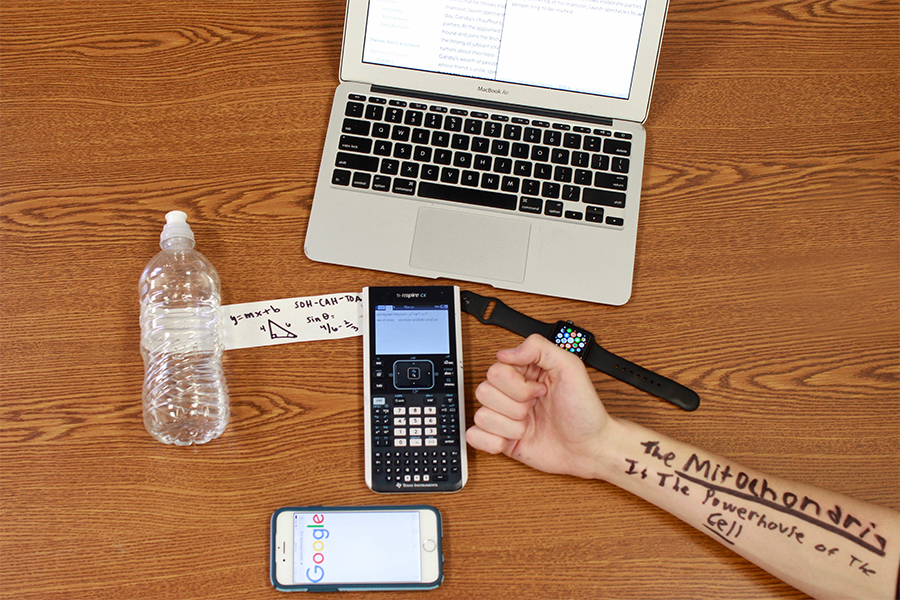How BSM combats cheating
April 28, 2017
Some students will do whatever it takes to get an A… even if that means cheating, so BSM has instituted various programs and rules to help to combat the issue.
In an anonymous survey of 211 BSM students, 40% admitted to cheating in the past and 83% report that they have seen another student cheat. The most common response to why students cheat was “bad grades.”
Junior Noah Bridges confided to the Knight Errant on how students cheat. “Walking through the commons in the morning you can see students that are copying or sharing information … The most common way [to cheat] on tests is to copy information on their hands,” Bridges said.
According to English teacher Maura Brew, although papers are rarely plagiarized, it does happen. “It’s sad that a student would do that at high school, and it’s sad that a student would do that in college,” Brew said.
However, BSM’s subscription to turnitin.com has reduced the rate of plagiarized essays because students know they’ll be caught. “We use [turnitin.com] as an educational tool to teach students that you can’t just do that [plagiarize]. You have to paraphrase or you have to quote,” Brew said.
Technology has influenced how students cheat. According to Bill Cheney, who work at the help desk, the type of cheating depends on the test. “We ran into a slew of issues with people saving data on calculators; we see issues with people opening websites like translators. It’s all been done before, we’re just doing it online now. The big difference now is how we approach when we’re looking to figure out what people are doing so we can bring that information to the dean,” Cheney said.
The punishment students receive for cheating or other academic misconduct depends on the type of offense and their past record. “We don’t have a set punishment for cheating, it depends on the teacher and the situation. Typically a student would lose points on that test or assignment, and we keep record of that academic misconduct,” Senior High Dean Seborn Yancy said.






































![Teacher Lore: Mr. Hillman [Podcast]](https://bsmknighterrant.org/wp-content/uploads/2025/03/teacherlorelogo-1200x685.png)












